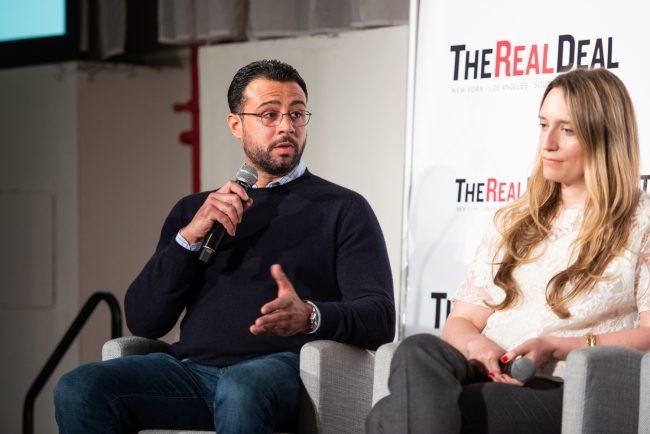There are threats on all sides. Venture-backed firms have hundreds of millions to spend, national brokerages are trying to crack the New York code, lead generation is changing how the rules of the brokerage game are played, and margins are getting thinner. The market isn’t exactly humming, either.
At The Real Deal’s 11th annual New York Real Estate Showcase and Forum on Monday — just weeks after Town Residential closed — the city’s top brokerage heads said they’re adjusting to the new normal. Some of their agents are even embracing the rise of StreetEasy’s signature advertising program Premier Agent, albeit with caution.
“I was not supportive of Premier Agent, [but] I’m changing my philosophy,” said Douglas Elliman’s Raphael De Niro, who was the city’s top sales agent in 2017, according to TRD’s recent ranking. He said “it works” even for his luxury-focused team, and, he quipped, “if you can’t beat ’em, join ’em.”
Related: Andrew Heiberger breaks down
Town’s downfall at TRD forum
Diane Ramirez, the CEO of Halstead Property, said her brokerage won’t sink money into Premier Agent, but it also won’t stop agents from participating.
“Deals are getting done on Premier Agent. The ones who do it well and are persistent are doing deals,” she said, adding that she is hopeful the New York Department of State makes Premier Agent “more transparent” and “more accountable.”
Bess Freedman, the co-president of Brown Harris Stevens, maintained her opposition.

Clelia Peters, Bess Freedman and Shaun Osher (Credit: Jhila Farzaneh for The Real Deal)
“Brown Harris Stevens as a firm has not put one penny of corporate dollars behind Premier Agent because I feel strongly that it violates our core ethics,” she said. “It’s like we’re giving them the bullet and putting the gun to our head.”
Few would argue that the rise of lead generation hasn’t already impacted their business. De Niro told moderator Hiten Samtani that as a result of lead generation, he recently co-brokered a $40,000 Manhattan rental with an agent from a 100 percent commission firm in Long Island.
“The fact that I’m co-broking with people from Great Neck on Manhattan rentals is crazy,” De Niro said.
“To anyone in the audience from Great Neck, I apologize on the panel’s behalf,” Samtani said. “It’s a lovely town.”
The panelists all said traditional brokerages continue to provide real value for agents. There’s a support system for agents, but also a real platform to make money for those with gumption and product knowledge, they said.
“A lot of my business is listings,” said De Niro. “I think 70 percent would be out of my reach if I didn’t have” the backing of an established brokerage.

Raphael De Niro and Clelia Peters (Credit: Jhila Farzaneh for The Real Deal)
The panelists, which included CORE CEO Shaun Osher and Warburg Realty president Clelia Peters, also addressed commissions, national players arriving in New York and agent recruiting.
Peters said it wasn’t large firms from other parts of the country that were going to impact commission splits, which have become increasingly less brokerage-friendly.
“I think Softbank is going to affect our commission splits,” she said of Compass’s big backer, noting that Masa Son’s strategy has been to scale so large that it sets the market.
Like BHS, Peters’ firm has resisted offering agents signing bonuses.
Related: Manhattan’s office and resi markets
still have plenty of room to grow, developers say at TRD forum
“Even at 10 percent, that’s a lot of your commission to give away,” she said. “We need to be really aware of what we’re offering to agents.”
Though he said he wasn’t looking for any one to indulge in grave-dancing, Samtani wanted to know what lessons the brokerage chiefs took from the closure of Town. Its CEO Andrew Heiberger earlier that day said the model was fundamentally broken.
“I disagree that traditional brokerage is not a sustainable business model,” said Osher, adding that the most recent quarter was CORE’s strongest in 12 years. “If that were true none of us would be sitting up here.”
The panelists said good agents would find opportunity in the market, stringing together deals and becoming experts on product.
Freedman, while noting that Heiberger impressed the industry by building such a large firm from the ground up, said that the downfall did not happen overnight.
“It’s like a relationship,” she said. “You don’t get up one day and get divorced.”
